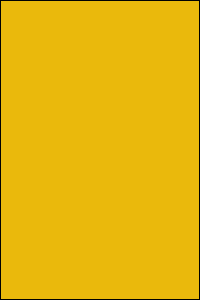- When did you start playing Go?
- I do not play Go. I study the game, people and myself in it. It happened so that I became the first person in Russia who had denied rating and left the rating list. This, by the way, turned to be too complicated for comprehension in my homeland. As to understand doesn’t mean to simplify.
Nevertheless, I’m running the Go School, which is one of the most successful schools in the field of private and corporate training. Up to date I am one of the highest-paid Go trainers in Russia. The cost of my class can reach 1000 USD.
What values do I explain to people under the Go brand? This is the topic for a special talk. Those trainers who “play Go” or just explain Go as a game are not the same. By the way, do they earn much? Are they paid for their classes according to the contemporary level of economical development? For if the Go game is paid as an ordinary table-game then Go trainers get an average salary in the field. No? I don’t know how much the European and American trainers of table-games earn, but I don’t think that these figures can be compared to the profits of the specialists on business strategy. Don’t you agree with me?
That is why the question “when did I start playing Go?” is interesting for me only in the following form: “when did I understand that ‘playing Go’ was not the right name for this phenomenon”.
Let me give you an example. Many people play computer strategies. So what? Is it interesting to any of us when some of us stopped playing ‘Civilization’ by Cid Mayor and started playing ‘Heroes’? But it is interesting to most of us how Cid Mayor invented ‘Civilization’ and we’d like to attend a lecture about it.
Thus, the direct answer to the question is – I started playing Go when I realized that Go wasn’t the game ‘which we play’.
- The only article written by you for our newsletter was devoted to the death of the Korean Go founder Cho Namcheol, 9-dan. Are you going to write new articles? What topics are you going to choose?
- This fall I’ve got many questions from Russian Go amateurs. These questions open a few topics that are interesting to me. For instance:
Hallo, Igor. Have you founded the Go School or the Yi School? (‘Yi’ is an ancient Chinese name of Go. A.D.) Which name is correct?
What is Yi and how does it correlate to Go?
Why do you call Yi a martial art?
Do you have many disciples in your school?
Igor, what does it mean to create School? What is necessary for it?
Are there any other schools of Yi in the world? Do you communicate with them?
What was in the very beginning? What difficulties did you face?
What did Go lack before? How did you manage to renew the interest to this ancient strategic art?
Go amateurs accepted your new ideas with enthusiasm, didn’t they?
Who is the Go Master?
Can you tell, please, how you see your and your school future? What do you strive for?
In Europe they traditionally studied the strategy, sometimes with the help of chess. What are the Chinese or Japanese games for?
What is war? Did you get certain battle experience of an ideological war when you were creating your school? What did you learn from it?
What does a modern successful person, an owner of a big business, need martial arts for? What can they give him or her? What does he or she need your art for? Now there are a lot of different trainings. Does your School offer something special?
If these questions are interesting to our readers, let’s wait for their responses and comments and start to answer them. Maybe they are likely to touch many people. Maybe they won’t get anyone. Maybe it is enough for Go amateurs to play on servers and buy e-books with tasks on life and death and Go art will be left in medieval Japan, China and Korea and it will never return to the modern world.
Best wishes.
Yours sincerely, Igor Grishin.
You are welcome to republish any text material from the IGN “Goama” without commercial purposes: please note the source and put the link to

